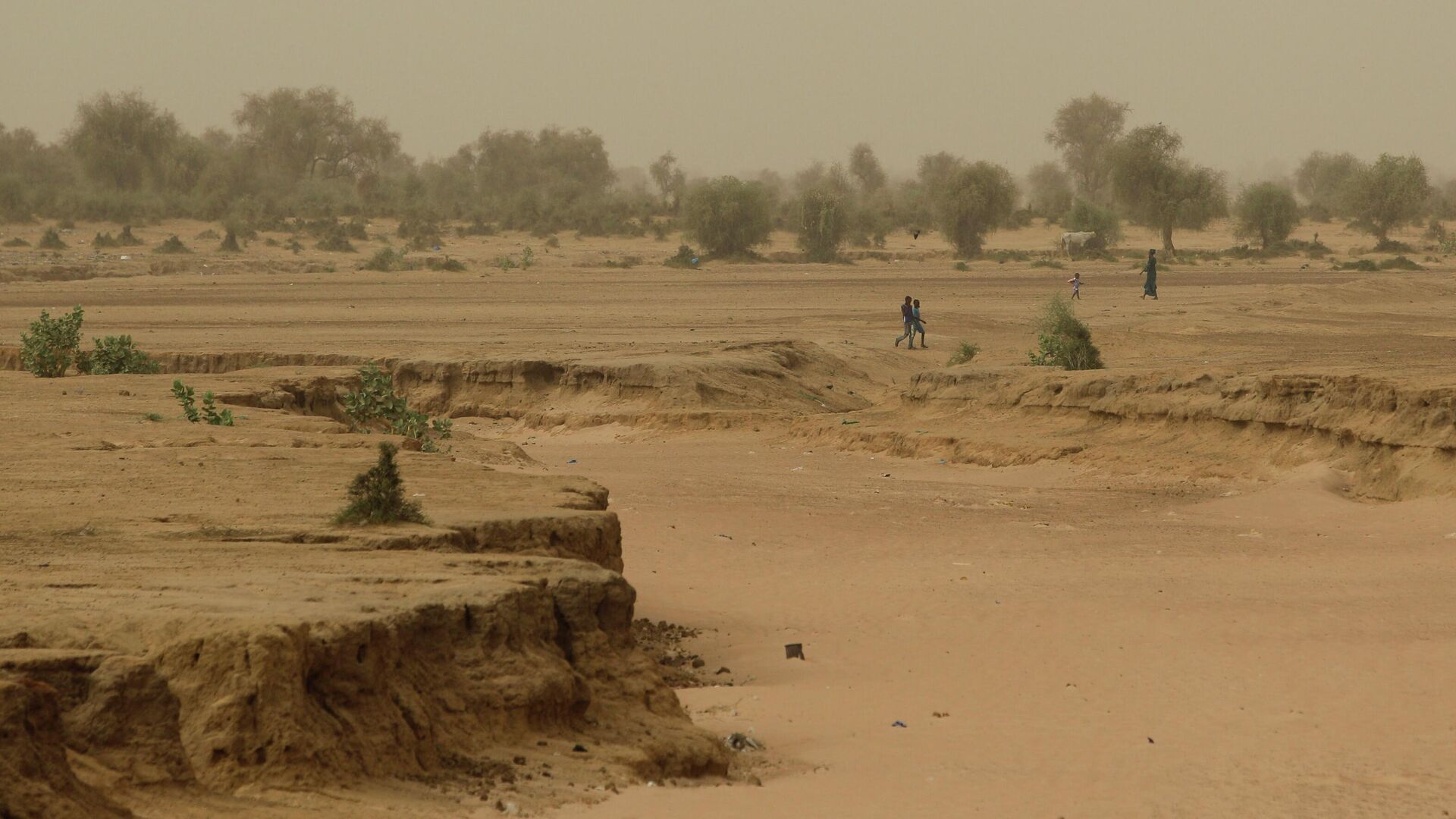https://sputnikglobe.com/20221027/violence-climate-change-effects-in-sahel-region-displace-45mln-people-1102773285.html
Violence, Climate Change Effects in Sahel Region Displace 4.5Mln People
Violence, Climate Change Effects in Sahel Region Displace 4.5Mln People
Sputnik International
MOSCOW (Sputnik) - Continuing violence, food insecurity and the effects of climate change eliminating ecosystems in the Sahel region in North Africa have... 27.10.2022, Sputnik International
2022-10-27T15:24+0000
2022-10-27T15:24+0000
2022-11-23T11:37+0000
africa
sahel region
climate change
west africa
sub-saharan africa
https://cdn1.img.sputnikglobe.com/img/07e6/0a/1b/1102772967_0:139:3149:1910_1920x0_80_0_0_4a34d9ccf916c9fe6e4f6ec0ba4ca639.jpg
"Violence has forced 4.5 million out of their homes in Mali, Niger and Burkina Faso, a 200% increase in the past two years. With 80% of the population of the Sahel relying on agriculture to survive, being displaced means they lose access to their lands and their livestock," the committee said in a statement.In Mali, entire lakes have dried up, "erasing entire ecosystems and forcing communities to move" because of the spread of desertification, which causes ground waters to disappear and puts pressure on farmers, the statement said.ICRC President Mirjana Spoljaric called for assistance to be provided for the countries of the Sahel region amid "ongoing emergencies" and said that targeted investments are necessary to help people to adapt to "rapid changes caused by climate change" and cease their dependence on aid.
africa
sahel region
west africa
sub-saharan africa
Sputnik International
feedback@sputniknews.com
+74956456601
MIA „Rossiya Segodnya“
2022
Sputnik International
feedback@sputniknews.com
+74956456601
MIA „Rossiya Segodnya“
News
en_EN
Sputnik International
feedback@sputniknews.com
+74956456601
MIA „Rossiya Segodnya“
Sputnik International
feedback@sputniknews.com
+74956456601
MIA „Rossiya Segodnya“
sahel region, climate change, west africa, sub-saharan africa
sahel region, climate change, west africa, sub-saharan africa
Violence, Climate Change Effects in Sahel Region Displace 4.5Mln People
15:24 GMT 27.10.2022 (Updated: 11:37 GMT 23.11.2022) MOSCOW (Sputnik) - Continuing violence, food insecurity and the effects of climate change eliminating ecosystems in the Sahel region in North Africa have already displaced 4.5 million people and negatively affected agriculture there, the International Committee of the Red Cross (ICRC) said on Thursday.
"Violence has forced 4.5 million out of their homes in Mali, Niger and Burkina Faso, a 200% increase in the past two years. With 80% of the population of the Sahel relying on agriculture to survive, being displaced means they lose access to their lands and their livestock," the committee said in a statement.
In Mali, entire lakes have dried up, "erasing entire ecosystems and forcing communities to move" because of the spread of desertification, which causes ground waters to disappear and puts pressure on farmers, the statement said.
"Mali lost 90,000 hectares [222,400 acres] of yield in 2021 due to drought, impacting the livelihood of more than 3 million Malians. This resulted in a 10.5% decrease in cereal production across the country," the statement added.
ICRC President Mirjana Spoljaric called for
assistance to be provided for the countries of the Sahel region amid "ongoing emergencies" and said that targeted investments are necessary to help people to adapt to "rapid changes caused by climate change" and cease their dependence on aid.


